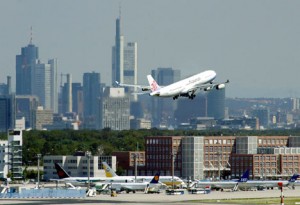 European budget airlines may face reduced profit margins as European Union air travel regulators consider reducing subsidies for unprofitable airports. The EU is planning to limit its spending on public airports that fail to make a profit as part of an extensive plan to reduce spending on public transportation facilities.
European budget airlines may face reduced profit margins as European Union air travel regulators consider reducing subsidies for unprofitable airports. The EU is planning to limit its spending on public airports that fail to make a profit as part of an extensive plan to reduce spending on public transportation facilities.
Airlines such as RyanAir have benefited from the EU subsidies, which decrease the cost of flying in and out of secondary airports. The Irish airline is well-known for its often inconvenient airport choices, with the budget operator frequently flying to and from airports that are located a long distance from their ‘real’ destinations.
The reason RyanAir is focused on second-tier airports it their reduced costs. The EU has subsidised second-tier airports for decades as part of a plan to reduce crowding at major air hubs such as Frankfurt and Paris. This allows budget airlines to enjoy a subsidised rate at second-tier airports located further from major cities.
EU regulators claim that the subsidies allow low-cost carriers like RyanAir to keep their prices down at the expense of taxpayers, who are left footing the bill for their lower-than-average operating costs. Regulators claim that 19 airports have ‘helped’ RyanAir by providing reduced gate fees and even making under-the-table payments.
One such deal, involving the French city of Montpellier, involved the airport making a total of over 798,000 euros to RyanAir over a two-year period. The payments were supposedly for online advertising services, although investigators believe they were little more than a bribe to encourage RyanAir to use the underserviced airport.
The proposed end to subsidies could force many European low-cost carriers to raise their prices. Regulators claim that the current system burdens taxpayers and wastes public money, while low-cost travel advocates claim that reducing subsidies could hurt the European air travel industry.





